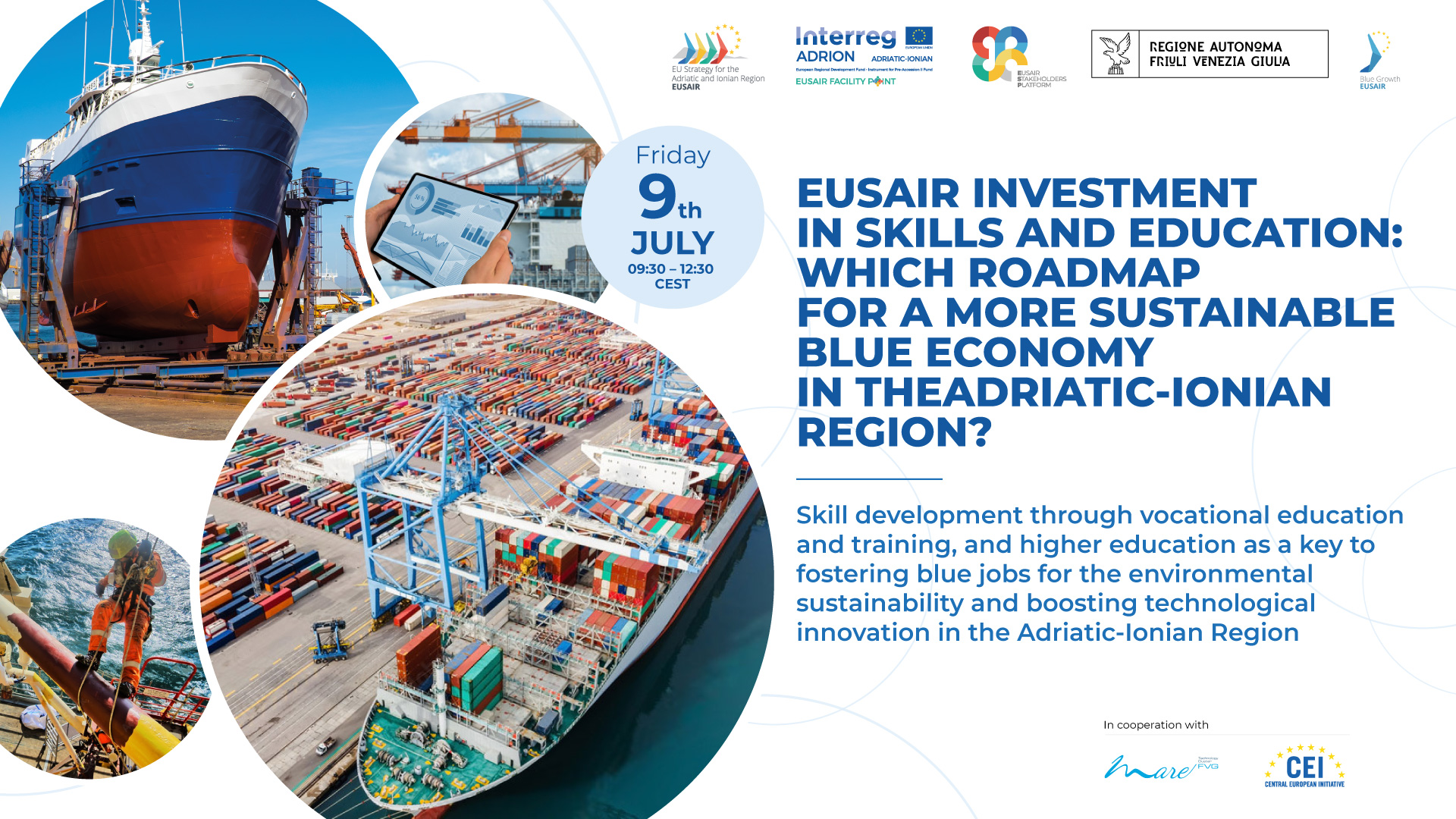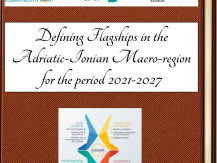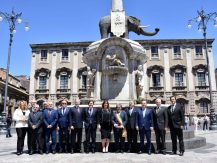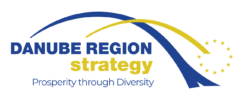EUSAIR INVESTMENT IN SKILLS AND EDUCATION FOR A MORE SUSTAINABLE BLUE ECONOMY IN THE REGION
9 July 2021 - Workshop on skill development through vocational education and training, and higher education as a key to fostering blue jobs for the environmental sustainability and boosting technological innovation in the Adriatic-Ionian Region
In the framework of the of the EUSAIR Pillar 1. “Blue Growth” implementation, the Friuli Venezia Giulia Autonomous Region promoted the event in cooperation with the Maritime Technology Cluster MARE FVG and the Central European Initiative - CEI with the aim to debate more in depth the new approach for a sustainable blue economy in the EU and to start a joint reflection on the blue -green upskilling and reskilling demand in the Adriatic and Ionian Region able to respond effectively to calls for digital and green transition. The workshop, organized with the essential support of the Marche Region, as EUSAIR Facility Point Project Partner, was attended by more than 100 participants including the institutional representatives of the European Commission (DG REGIO, DG MARE, DG EMPL), the EUSAIR governance actors and key stakeholders coming from 9 EUSAIR countries.

Kicking off an expert exchange on the state of play as regards the education and training needs emerging from the blue sustainable economy value chains in the Adriatic and Ionian Region (AI Region) has been conceived as the first step towards coordinated actions linked consistently with the respective S3 national and regional strategies for sharing and defining potential common training and education paths and joint initiatives to fill in gaps in professional profiles. The plenary session setting out EU policy framework and the key challenges in the medium to long term, was followed by two thematic roundtables, focused respectively on sustainable ship and boat-building and sustainable port operations.
With regard to the round table “Blue skills on sustainable ship and boat building in the AI Region”, the willingness to promote and sustain the quadruple helix ties in the fields of marine technologies emerged for advancing in capacity building to promote innovation, business development and business adaptation. Also it was stressed the need to set up mechanisms capable of creating long term collaboration, opportunities of aligning existing funds and dedicate cross-cutting efforts to transfer these skills. Investing in engineering and education at all levels, starting from primary school, in order to promote a greener industry and to integrate digital revolution in the relevant seems also relevant. A digital approach must be applied to a long-based learning, addressing the need to stimulate transversal skills (mobility, new teaching methodologies, optimization of resources). The AI Region is facing a turning point for ship and boat building industry.
The second round table focused on the “Blue skills on sustainable port operations in the AI Region”, combining representatives from port operators with education institutions, underlined the requirements for innovative solutions in many sectors, with an interdisciplinary approach in problems definition and possible training solutions. New technologies should be monitored in order to understand the real effect in the demand-supply chain and in this sense a strategy based on data and concrete actions is necessary in meeting demand and offer. Interdisciplinary and soft skills are enhanced in comparison to traditional jobs and an indicative list of new skills taking in to account system, equipment and automation, IT technologies, has been shared responding to the diversification of the port system which is changing its traditional role towards an energy and sustainable industry hub.
In the final session, the workshop was expanded to include the experiences already gained in the EU Strategy for the Baltic Sea Region also in terms of embedding the macroregional approach in the mainstreaming context. A special contribution concerning the financial instruments available was also brought by the Interreg ADRION Programme 2014—20 on the results already achieved in the field of blue skills and the design of the relevant priorities of the future Programme 2021-27 as well as by the European Commission and ANPAL on the European Social Fund opportunities for the Adriatic and Ionian communities in the current challenging phase of transformative processes.
For more information on the event, its concept note and agenda, as well as presenetations used and last but not least VIDEO RECORDINGS to take another look, please follow the link below to the dedicated website!
You might be interested in

EUSAIR flagships all summed up!

The Hellenic Republic assumes the Presidency of the EU Strategy for the Adriatic and Ionian Region (EUSAIR) (1 June 2024 – 31 May 2025)

3rd EUSAIR Annual Forum – CATANIA DECLARATION







